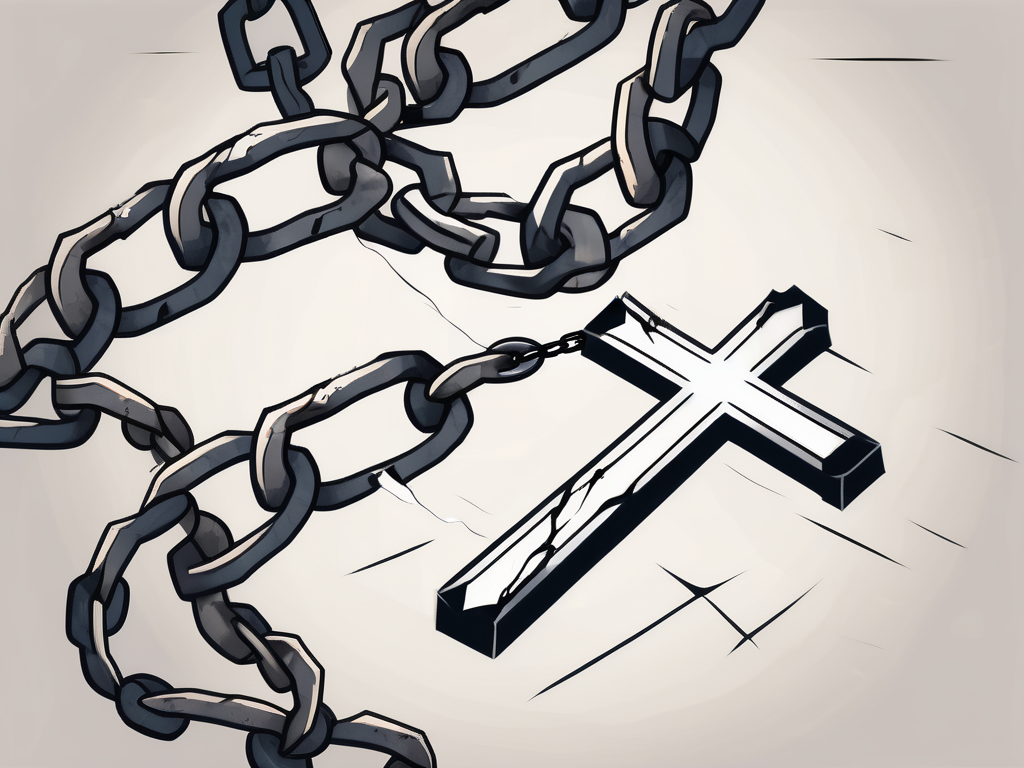Miscarriage is a deeply painful experience that many couples go through. It can leave them grappling with questions of loss, grief, and even guilt. In times of such heartache, seeking solace and guidance from the Bible can be a source of comfort. Let’s delve into what the Bible has to say about miscarriage and how its words can provide healing and understanding.
Understanding Miscarriage from a Biblical Perspective
When facing the tragedy of miscarriage, it is important to understand it within the context of the Bible. One fundamental aspect that the Scriptures emphasize is the sanctity of life.
The Bible repeatedly affirms the value of human life. In Genesis 1:27, it states that God created humans in His own image, signifying their intrinsic worth. This sanctity of life extends to the unborn as well, as seen in Psalm 139:13-16, where the psalmist acknowledges God’s involvement in their formation.
Understanding the biblical view on the sanctity of life can bring comfort and reassurance to those who have experienced the loss of a child through miscarriage. It reminds them that their unborn child was not just a biological entity, but a precious life created by God Himself.
The Bible’s View on the Sanctity of Life
The concept of the sanctity of life is deeply rooted in the Bible. It is a belief that every human life, from conception to natural death, is sacred and should be protected. This belief is not only relevant to the issue of abortion but also extends to the pain and grief experienced in the event of a miscarriage.
When a miscarriage occurs, it is not just the loss of a potential life, but the loss of a unique individual who was fearfully and wonderfully made by God. This understanding can provide solace to those who are grieving, knowing that their child was known and loved by God, even if their time on earth was brief.
Biblical Passages Addressing Loss and Grief
Loss and grief are recurring themes throughout the Bible. The Book of Job, for instance, explores the depths of suffering and the immense grief experienced by its protagonist. Job’s story serves as a reminder that even in the face of overwhelming loss, it is possible to find hope and restoration in God.
Additionally, the Psalms provide comfort and solace for those who mourn, reassuring them of God’s presence even in times of despair. Psalm 34:18 says, “The Lord is close to the brokenhearted and saves those who are crushed in spirit.” This verse reminds us that God is not distant or indifferent to our pain but is intimately involved in our healing and restoration.
When dealing with the pain of miscarriage, these biblical passages can serve as a source of strength and hope. They remind us that we are not alone in our grief and that God is with us, offering comfort and healing in the midst of our sorrow.
Theological Interpretations of Miscarriage
Various theological interpretations can shed light on the complexities of miscarriage and the questions it raises. Understanding these interpretations can provide comfort and guidance to individuals navigating the emotional and spiritual impact of miscarriage.
Old Testament References and Interpretations
In the Old Testament, there are instances where God’s intervention in conception and pregnancy is mentioned. For example, in Genesis 25:21, God answers Isaac’s prayers by enabling his wife, Rebekah, to conceive. This passage highlights the belief that God is actively involved in the creation of life, including the process of conception and pregnancy.
Furthermore, the Old Testament offers narratives that explore the complexities of human suffering and loss. The story of Job, for instance, delves into the depths of pain and anguish experienced by an individual who faced numerous tragedies, including the loss of his children. This narrative provides a framework for understanding the profound grief that accompanies miscarriage and encourages individuals to seek solace in their faith.
Additionally, the Psalms offer a rich source of comfort and expression of emotions during times of sorrow. Psalms such as 34, 42, and 139 resonate with individuals who have experienced the loss of a child through miscarriage, providing a language to articulate their pain and a reminder of God’s presence even in the midst of suffering.
New Testament Perspectives on Miscarriage
The New Testament doesn’t directly address miscarriage, but it does offer insights into God’s character and His love for humanity. In Romans 8:28, the apostle Paul reminds believers that God works all things, including suffering, for their ultimate good. This reassurance can bring hope to those grappling with the pain of miscarriage, assuring them that even in the midst of their loss, God is working to bring about something good.
Moreover, the life and ministry of Jesus provide a model of compassion and empathy for those who are suffering. Jesus’ interactions with individuals who experienced loss, such as the raising of Lazarus from the dead (John 11:1-44), demonstrate his deep understanding of human pain and his ability to bring healing and restoration.
Furthermore, the concept of resurrection in the New Testament offers hope for those who have lost a child through miscarriage. The belief in the resurrection of the dead assures individuals that they will be reunited with their child in the eternal life to come, providing comfort and solace in the face of their present grief.
In conclusion, theological interpretations of miscarriage offer a framework for understanding and navigating the complexities of this experience. They provide comfort, hope, and a sense of meaning in the midst of grief, reminding individuals that they are not alone and that their faith can be a source of strength and healing.
Comfort and Healing Through Scripture
During times of grief and loss, finding comfort and healing can seem almost insurmountable. The weight of sorrow can feel overwhelming, leaving individuals searching for solace and reassurance. However, the Bible offers a wealth of verses that can provide a guiding light in the midst of darkness.
In the face of the pain caused by miscarriage, it is crucial to find strength and support. The words of Psalm 34:18 affirm that God is near to the brokenhearted and saves those who are crushed in spirit. This verse serves as a gentle reminder that even in the depths of despair, God is present, offering the support and healing needed to navigate the difficult journey of grief.
When grappling with the loss of a child, it can be challenging to understand why such tragedy occurs. Lamentations 3:31-33 assures us that God does not willingly bring affliction or grief to anyone. Although it may be difficult to comprehend, this verse serves as a beacon of hope, reminding us that God’s intentions are rooted in love, even in the face of unimaginable pain.
Biblical Verses for Coping with Miscarriage
Psalm 34:18 affirms that God is near to the brokenhearted and saves those who are crushed in spirit. This verse can remind individuals that even in their darkest moments, God is with them, offering the support and healing they need.
Lamentations 3:31-33 assures us that God does not willingly bring affliction or grief to anyone. Although it can be difficult to comprehend, this verse reminds us that God’s intentions are rooted in love, even in the face of tragedy.
When faced with the loss of a child, it is natural to question one’s faith and purpose. However, it is during these trying times that faith can play a vital role in the healing process. Holding onto the promises found in Isaiah 41:10, where God declares, “Do not fear, for I am with you,” can help individuals find strength in their faith and regain hope for the future.
Additionally, Romans 15:13 encourages believers to hope in God’s power, which can bring joy and peace as they trust in Him. This verse reminds individuals that, despite their grief, there is still room for restoration and happiness.
The Role of Faith in Healing After Miscarriage
Faith plays a vital role in the healing process after experiencing a miscarriage. Holding onto the promises found in Isaiah 41:10, where God declares, “Do not fear, for I am with you,” can help individuals find strength in their faith and regain hope for the future.
Additionally, Romans 15:13 encourages believers to hope in God’s power, which can bring joy and peace as they trust in Him. This verse reminds individuals that, despite their grief, there is still room for restoration and happiness.
When faced with the loss of a child, it is natural to question one’s faith and purpose. However, it is during these trying times that faith can play a vital role in the healing process. Holding onto the promises found in Isaiah 41:10, where God declares, “Do not fear, for I am with you,” can help individuals find strength in their faith and regain hope for the future.
Additionally, Romans 15:13 encourages believers to hope in God’s power, which can bring joy and peace as they trust in Him. This verse reminds individuals that, despite their grief, there is still room for restoration and happiness.
The Bible and the Question of Sin
The topic of sin is a complex one, and understanding its connection to miscarriage requires careful consideration within the biblical framework.
Sin, a concept deeply rooted in the Bible, has been a subject of theological debate for centuries. It encompasses a wide range of actions, thoughts, and behaviors that are considered to be contrary to God’s will. The consequences of sin, according to biblical teachings, can vary greatly, from spiritual separation from God to physical suffering and even death.
Does the Bible Consider Miscarriage a Punishment for Sin?
When it comes to the specific question of whether the Bible considers miscarriage a punishment for sin, the answer is not explicitly stated. While the Bible does contain passages that discuss the consequences of sin, it does not directly link miscarriage to personal wrongdoing.
However, it is important to note that the Bible acknowledges the reality of suffering in the world. In John 9:1-3, Jesus addresses the disciples’ assumption that a man’s blindness was a result of sin, stating that suffering is not always a direct consequence of personal wrongdoing. This passage suggests that miscarriage, like any other form of suffering, should not be automatically attributed to sin.
The Concept of Original Sin and Miscarriage
Another aspect to consider is the concept of original sin, which is often associated with the fall of Adam and Eve in the Garden of Eden. Original sin refers to the inherited sinful nature that all humans are said to possess as a result of Adam and Eve’s disobedience.
However, the concept of original sin does not directly correlate with miscarriage. In Ezekiel 18:20, it is explicitly stated that children should not be punished for their parents’ sins. This verse suggests that miscarriage cannot be viewed as a consequence of past sins.
It is important to approach the topic of sin and miscarriage with sensitivity and compassion. While the Bible provides guidance and wisdom on various aspects of life, it does not offer a definitive answer to every question. Instead, it encourages individuals to seek understanding, comfort, and healing through faith, prayer, and community.
The Role of God in Miscarriage According to the Bible
Understanding God’s role in miscarriage can be challenging, given the mystery of suffering and His sovereignty. However, the Bible offers insight into this enigma.
God’s Sovereignty and the Mystery of Suffering
Throughout the Bible, there are instances where suffering and loss are attributed to the brokenness of the world rather than God’s specific intervention. The book of Job underscores the mystery of suffering and the limits of human understanding.
Job, a righteous man, experienced immense suffering and loss. He lost his children, his wealth, and his health. In his anguish, Job questioned why such suffering was allowed to happen. His friends tried to offer explanations, suggesting that Job must have sinned to deserve such misfortune. However, God’s response to Job’s questioning revealed a different perspective. God reminded Job of His sovereignty and the limited understanding of human beings. He asked Job a series of rhetorical questions, highlighting His power and wisdom in creating and sustaining the universe. Through this dialogue, the book of Job teaches us that suffering is not always a direct result of personal sin, but rather a part of the brokenness of the world we live in.
The Bible’s Assurance of God’s Love in Times of Loss
In times of loss, it’s important to find reassurance in God’s love. Romans 8:38-39 emphasizes that nothing can separate believers from God’s love. Remembering this truth can provide comfort and hope, even amidst the pain of miscarriage.
The apostle Paul, in his letter to the Romans, addresses the struggles and sufferings faced by believers. He assures them that nothing, not even death or life, angels or demons, the present or the future, can separate them from the love of God. This powerful statement reminds us that God’s love is constant and unwavering, even in the midst of tragedy. It is a source of strength and solace for those who have experienced the loss of a child through miscarriage.
Though miscarriage is undoubtedly a painful experience, the Bible offers guidance, solace, and healing. Through its pages, we can find answers to our questions, reassurance in times of grief, and the strength to move forward. Allow the Bible to be a source of comfort and guidance during this difficult journey, trusting that God is with you every step of the way.
In addition to the book of Job and the letter to the Romans, there are other passages in the Bible that provide insight into God’s role in miscarriage. The Psalms, for example, contain numerous prayers of lament and expressions of grief. These heartfelt words give voice to the pain and sorrow experienced by those who have lost a child. They remind us that it is okay to cry out to God in our anguish and seek His comfort and understanding.
Furthermore, the story of Hannah in the book of 1 Samuel offers hope and encouragement to those who have struggled with infertility or experienced miscarriage. Hannah, who was barren for many years, fervently prayed to God for a child. Her persistence and faith were eventually rewarded, and she gave birth to a son named Samuel. This narrative reminds us that God hears our prayers and can bring new life out of barrenness and loss.
As we navigate the complexities of miscarriage, let us turn to the Bible for wisdom, comfort, and hope. It is a sacred text that speaks to the depths of our pain and offers glimpses of God’s love and sovereignty. May it be a source of strength and healing as we seek to understand God’s role in the midst of this profound loss.












